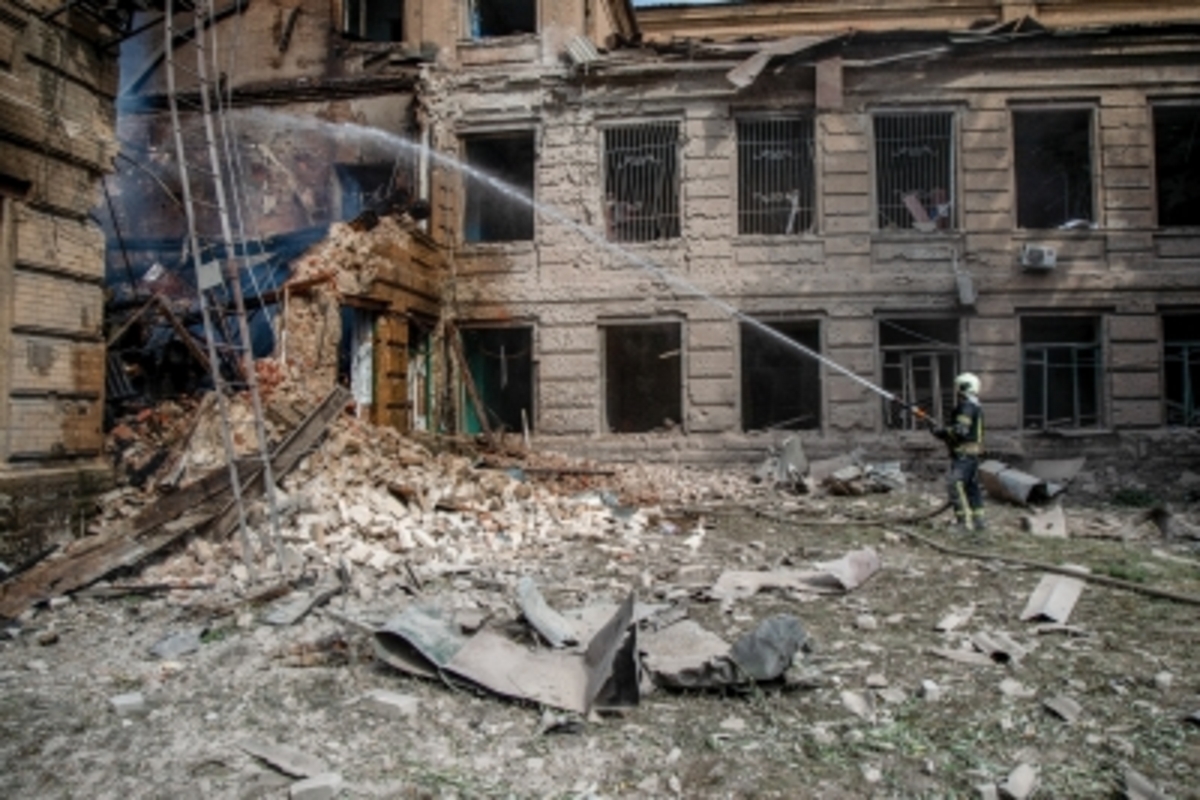Fresh fightings were reported from east Ukraine, but the world’s attention remained focused on the fate of the Zaporizhzhya nuclear power plant.
Fears about the state of the nuclear plant, set uncomfortably on the front lines between Russian and Ukrainian troops, remained high.
Advertisement
Both sides have said it is at risk of a nuclear disaster because of the other sides’ attacks. Both deny taking action against the facility, and it is not possible to immediately verify information from either side, dpa news agency reported.
Russian forces occupying the plant said on Sunday that they had to shoot down an armed drone sent by the Ukrainians.
It fell on a safety cover spanning the reactor after it was shot down, according to reports carried in Russian media. The explosives it was carrying were detonated without causing any harm. Independent confirmation of the report was not immediately possible.
Russia said the drone was on its way to attack a storage area for spent fuel rods.
Several projectiles also hit the nearby city of Enerhodar, with Russia and Ukraine blaming each other for the artillery fire.
Vladimir Rogov, of the occupying Russian administration, said seven people were injured and accused Ukraine of trying to prevent a visit by the International Atomic Energy Agency (IAEA).
Enerhodar’s Ukrainian mayor Dmytro Orlov, who has fled the area, said it was a provocation and that Russian troops were behind it.
Moscow said earlier that attacks in the past day had seen one shell hit near reactor number six, the other at a pumping station that provides cooling.
No increase in radiation levels at the plant have been recorded following the recent shelling, authorities in Kiev and Moscow said on Sunday.
For weeks, both sides have accused each other of shelling the sprawling complex, raising the spectre of disaster at Europe’s biggest nuclear plant.
After the nuclear plant was temporarily disconnected from Ukraine’s power grid on Thursday following an emergency shutdown, two units are back online, according to Ukrainian state nuclear operator Enerhoatom.
The Russian military also confirmed an attack on the city of Zaporizhzhya, which sits across the Dnipro River, using “high-precision weapons.”
A hall where Ukrainian air force helicopters were repaired was hit, the ministry said.
The Ukrainian army said in its evening report that dozens of Ukrainian communities along the 2,000-km long front were fired on by Russian tanks.
They said new Russian offensives were fought off in the east, including in the village of Vesela Dolyna and the city of Bakhmut, which are the sites of weeks-long stand-offs.
Pro-Russian Ukrainian separatists attempted a push north-west of the city of Donetsk into the village of Pervomaiske, which the Ukrainian military said was repelled, though it also said it had lost control of the Donetsk suburb of Pisky.
The mayor of Kharkiv in the north east said the area was struck by two missiles, while Rivne in the north also reported coming under missile attack. The district of Sarny reported that a military site was struck.
Elsewhere, the Ukrainian mayor of the Russian-occupied city of Melitopol wrote on Telegram that a Russian military base had been destroyed in the south-eastern city.
Russian officials also seem to be laying the groundwork for an annexation of occupied parts of Ukraine. Kremlin official Sergei Kiriyenko on Sunday cited recent surveys showing high levels of support for joining Russia. In Donetsk and Luhansk, he said between 91 per cent and 92 per cent were in favour, and 75-77 per cent in Kherson and Zaporizhzhya.
Ukraine still controls large parts of Donetsk and has hinted at a counteroffensive in Kherson.
There is also much scepticism about the validity of the data. Online news website Medusa recently said its surveys showed an even split of about 30 per cent for and 30 per cent against joining Russia, with the rest giving no opinion.











